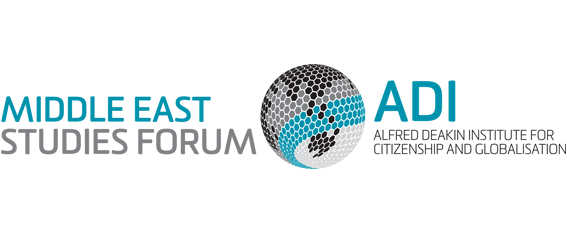Ten years ago, millions of citizens took to the streets across the Middle East to call for freedom, dignity and hope in a wave of uprisings that would fundamentally change the region. Join the DFAT Council for Australian-Arab Relations, the Middle East Studies Forum and WoMENA for a panel of Women Know MENA experts Alia Ibrahim (Daraj Media), Asma Khalifa (Tamazight Women’s Movement) and Lama Fakih (Human Rights Watch) to discuss the role of women in and since the uprisings.
Download the flyer here.
Details:
4 February 2021
Zoom
7:30pm – 9:30pm (Melbourne) | 10:30am – 12:30pm (Beirut) | 8:30am – 10:30am (London)
Please RSVP to mesf@deakin.edu.au by 3 February – Zoom login details will be sent via email to all guests on that day.
Speaker bios:
Alia Ibrahim is the co-founder and CEO of Daraj Media. Prior to co-founding Daraj, Alia was a senior news correspondent for Al-Arabiya News channel. Her assignments took her to countries across the region, including Tunisia, Yemen, Libya, Bahrain, Turkey, Egypt, Iraq, and Syria. Alia’s opinion and news stories appeared in numerous publications including Al-Hayat newspaper, Al-Arabiya online platform, and, until 2011, The Washington Post, where she had been a contributing reporter since 2005. Alia’s career started in 1996 as a news reporter at The Daily Star in Beirut. She became managing editor of the newspaper in 2014. She is a journalism instructor at the Lebanese American University.
Asma Khalifa is a Libyan activist and researcher who has worked on human rights, women’s rights, and youth empowerment since 2011. For her efforts, Khalifa received the 2016 Luxembourg Peace Prize during the World Peace Forum in the European Parliament and, in 2017, she was named one of the “100 Most Influential Young Africans” by the Africa Youth Awards. Khalifa is also the co-founder of Tamazight Women’s Movement, a think/do tank that is working on gender equality and research on the indigenous women of Libya and North Africa.
Lama Fakih is Human Rights Watch’s Crisis and Conflict director and the director of the Beirut office. Prior to her current role, Fakih was Deputy Director of the Middle East and North Africa Division from September 2016-September 2019. She was a Senior Crisis Advisor in Amnesty International’s Crisis Response Program and was Human Rights Watch’s Syria and Lebanon researcher from 2011-2015. Previously, she worked as the Gender, Human Rights and Counter-Terrorism Fellow at the Center for Human Rights and Global Justice (CHRGJ) at the New York University School of Law.
This panel has been generously supported by a DFAT Council for Australian-Arab Relations Women In Leadership grant

